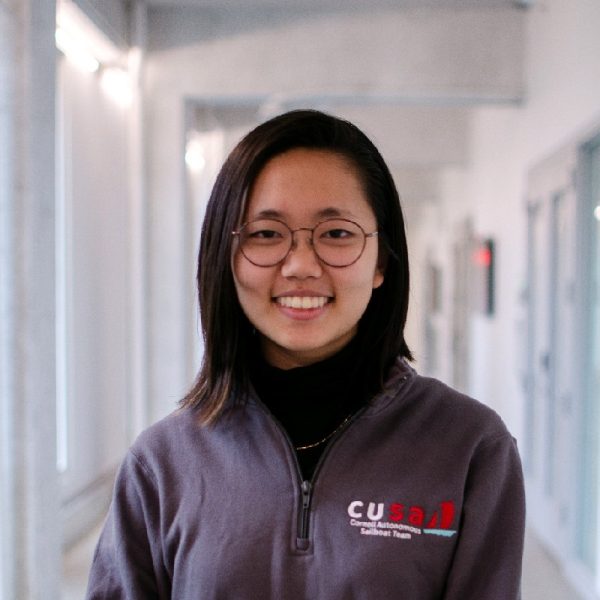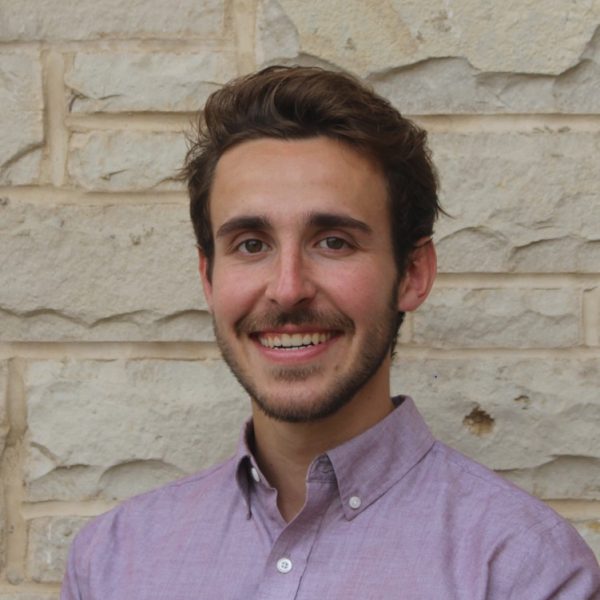Four students from the NC State University Department of Mechanical and Aerospace Engineering have been selected for the the 2023 National Science Foundation Graduate Research Fellowship Program (NSF-GRFP).
According to the NSF Website, the fellowship recognizes and supports outstanding graduate students in NSF-supported STEM disciplines who are pursuing research-based master’s and doctoral degrees at accredited US institutions. The five-year fellowship includes three years of financial support including an annual stipend of $37,000 and a cost of education allowance of $12,000 to the institution.
“Since 1952, NSF has funded over 60,000 Graduate Research Fellowships out of more than 500,000 applicants,” the website states. “Currently, 42 Fellows have gone on to become Nobel laureates, and more than 450 have become members of the National Academy of Sciences. In addition, the Graduate Research Fellowship Program has a high rate of doctorate degree completion, with more than 70 percent of students completing their doctorates within 11 years.”
Each year, upward of 12,000 students apply, and only 2,000 are offered the fellowship. From MAE, four outstanding students were awarded the fellowship this year:
Chase Jenquin
 Jenquin will graduate from NC State with a bachelor’s degree in aerospace engineering in May 2023. During his time at NC State, he was part of the University Honors Program and was heavily involved in undergraduate research in Dr. Venkat Narayanaswamy’s Turbulent Shear Flow Lab.
Jenquin will graduate from NC State with a bachelor’s degree in aerospace engineering in May 2023. During his time at NC State, he was part of the University Honors Program and was heavily involved in undergraduate research in Dr. Venkat Narayanaswamy’s Turbulent Shear Flow Lab.
His research spanned a wide variety of supersonic aerodynamic research topics including diagnostic development, scramjet inlet testing, and shock-induced flow separation. This research allowed him to closely study high-speed aerodynamics in a variety of contexts. He was able to use this experience during his summer internship with the Air Force Research Labs which enabled him to explore a number of other exciting supersonic aerodynamic research projects.
After graduating, he plans to attend Purdue University where he will work in Dr. Joe Jewell’s research group. During graduate school, he plans to study the interaction of fundamental boundary layer instabilities which will give insight into the mechanisms behind boundary layer transition, a phenomenon responsible for high localized heating that can be detrimental to high-speed vehicles.
Jennifer Lee
 Lee graduated with a bachelor’s degree in mechanical engineering from Cornell University in 2022. She is currently a first-year doctoral student at NC State, and she currently works in Andrew A. Adams Distinguished Professor Yong Zhu’s Nanomechanics and Nanoengineering Laboratory.
Lee graduated with a bachelor’s degree in mechanical engineering from Cornell University in 2022. She is currently a first-year doctoral student at NC State, and she currently works in Andrew A. Adams Distinguished Professor Yong Zhu’s Nanomechanics and Nanoengineering Laboratory.
Her research currently focuses on the thermal actuation of soft materials and shape changing behaviors based on heating patterns, and her long-term goal is the development of silver nanowire applications in soft electronics and robotics with potential applications on wearable devices facilitating novel drug delivery and therapeutic strategies.
She will continue to work in the Nanomechanics and Nanoengineering Laboratory as she continues her doctoral studies, contributing to research that aims to addresses fundamental and applied issues at the intersection of Mechanics of Materials and Micro/Nano-technologies. According to the Lab’s website, Nanomaterials exhibit outstanding material properties as well as well-controlled defect structures and they are interested in understanding mechanical and multiphysical behaviors of nanomaterials.
Jack Turicek
 Turicek completed his undergraduate studies at the Milwaukee School of Engineering before coming to North Carolina State University, where he is a second-year doctoral student studying mechanical engineering.
Turicek completed his undergraduate studies at the Milwaukee School of Engineering before coming to North Carolina State University, where he is a second-year doctoral student studying mechanical engineering.
Turicek is a member of the Multifunctional Composites Group advised by Jason patrick, who is an MAE Affiliate Faculty Member and an Assistant Professor in the Department of Civil, Construction, and Environmental Engineering. The group designs, fabricates and characterizes synthetic fiber-reinforced composite materials that have unique secondary functions inspired by nature (i.e., thermal regulation, damage sensing, and self-healing capabilities).
Turicek says he is particularly interested in continually building a toolbox of different skills which he can use to solve problems later in his graduate or postgraduate career, making use of a variety of his engineering skills like 3D-printing, composite/polymer fabrication and mechanical testing, optical/uCT scan imaging, and much more.
Vinson Williams
 Williams graduated from UNC Asheville and NCSU with a joint degree in Mechatronics in May 2021 and he is currently a second-year doctoral student studying aerospace engineering.
Williams graduated from UNC Asheville and NCSU with a joint degree in Mechatronics in May 2021 and he is currently a second-year doctoral student studying aerospace engineering.
He is interested in controls, dynamics, robotics, renewable energy and autonomous systems. He currently works with Dr. Matthew Bryant on the tethered coaxial turbine project, for which they are exploring the physics of energy extraction via two coaxial rotors. Williams says that while the system we are researching is mechanically simple, the dynamics which determine the system’s response are highly coupled and nonlinear, which he finds to be the most challenging and interesting aspect of the project.
Williams is already an accomplished researcher, and has published two conference papers, and was recently been selected for the DoE Marine Energy Fellowship. After he graduates, Williams would like to get a few years of industry experience, and then start a mechatronics and autonomous systems engineering contracting firm.